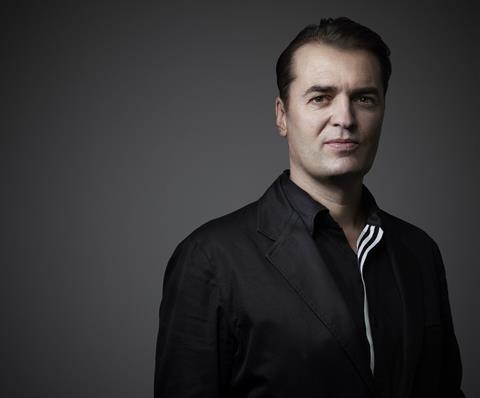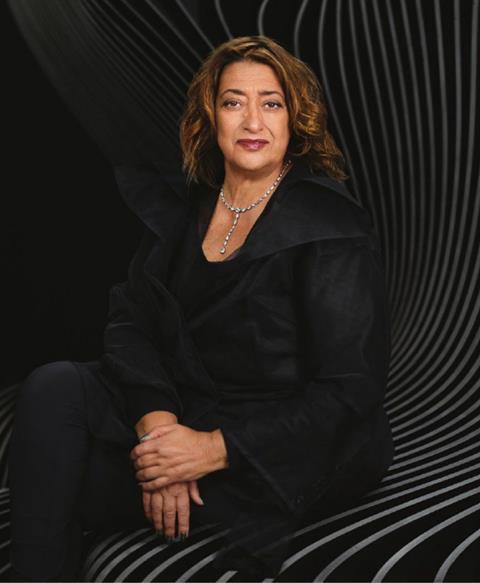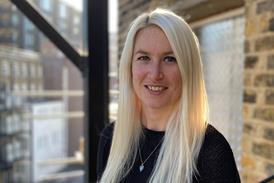Judge rules against ZHA principal as ‘toxic dispute’ over practice and its founder’s £100m estate is finally settled
Patrik Schumacher has emerged bruised from a long-running legal row that threatened to tear apart the practice he ran with the late Zaha Hadid.
Hadid’s long-term collaborator settled his “toxic dispute” with the three other executors of the architect’s will out of court after more than three years of bitter in-fighting that exploded into the public arena.
One significant matter that could not be resolved ended up before a judge at the High Court, this month in a case said to have cost millions of pounds that will come out of Hadid’s £100m estate.

Schumacher wanted the power of veto over the firm’s board of trustees so he could be in control of the business, which his lawyers argued was Hadid’s dying wish.
But in a blow to his ability to make decisions about the practice, the judge ruled against him. According to a report in the Guardian chief master Matthew Marsh said granting Schumacher this power would leave the director “in a very difficult position with regard to conflicts of interest”.
The court had heard a string of colourful allegations against Schumacher – which he counters are “unproven, contested, and must be considered in the context of a long-running, acrimonious dispute”.
The allegations fall into two areas – personal and professional – and arise from two independent reports submitted to the court that were critical of Schumacher and were the result of complaints by whistleblowers, the Guardian said.
The personal allegations were that he had had several “clandestine” relationships with junior members of staff, pushed for payrises and promotions for favoured staff, and that he had fathered a child with his current partner, an employee.
The other allegations were said to centre around “numerous failings of corporate governance” by Schumacher who was accused of abusing veto powers.
The judge did not make any ruling on the allegations but he was reported to have said Hadid “didn’t wish for this dispute, which is the real tragedy”.

In a statement, Zaha Hadid Architects said it was “dismayed by the unfounded allegations being made against Patrik Schumacher”.
It added: “The allegations are unproven, contested, and must be considered in the context of a long-running, acrimonious dispute between the trustees of Zaha’s estate. Patrik began working with Zaha Hadid in 1988 and their near 30-year collaboration is the foundation of our success. Under his leadership, we continue to build upon the legacy Zaha and Patrik established together over almost three decades.”
The other executors declined to comment.
>> Also read: Exclusive: Schumacher’s explosive allegations hit High Court
>> Also read: Zaha executors take sweeping powers to investigate practice
>> Also read: Zaha Hadid Architects’ name ‘will change’, court papers confirm
The legal row first became public in 2018 when Schumacher lodged a High Court claim against the other executors of the late architect’s £100m estate – stained glass artist Brian Clarke, Hadid’s niece Rana Hadid, and property developer Peter Palumbo – in a bid to oust them.
The three, who were appointed directors of Zaha Hadid Holdings, the practice’s parent company, in 2017, issued a statement at the time saying Hadid had appointed them as executors because she trusted them to act in her best interests.
“All three were known to Zaha for decades; one was a close family member, and the other two were very good friends,” it said, adding: “The attempt to remove these three executors is totally unjustified and misconceived.”
At the same time they quietly gave themselves the power to establish an “investigations committee” to probe the practice’s corporate governance which is not required to share information with the rest of the board of ZHL.
The first indication of bad blood between Schumacher and his fellow executors came when he made a libertarian speech arguing that social housing was wrong and that most of Hyde Park should be built over. The other three issued a statement distancing themselves and Hadid from his views.
Hadid, who died suddenly in March 2016, left an estate now valued at £100m which included individual bequests of £500,000 each for Schumacher and Rana Hadid as well as the same amount each for her brother and nephew.
The remainder of her estate was to be held in trust for up to 125 years with the trustees given discretion over its allocation. A default clause would revert all undistributed proceeds to the Zaha Hadid Foundation.
This month’s out-of-court settlement is said to have agreed that the bulk of her wealth will go to the foundation and that shares in the practice, known as Zaha Hadid Ltd (ZHL), will be placed in an employee-benefit trust chaired by Schumacher.
Previously the sole shareholder of ZHL was Zaha Hadid Holdings (ZHH) whose directors are Clarke, Palumbo, Rana Hadid and Schumacher.
The foundation, a charity, has plans to award scholarships to help Arab women become architects and to establish a museum of Hadid’s work.













2 Readers' comments